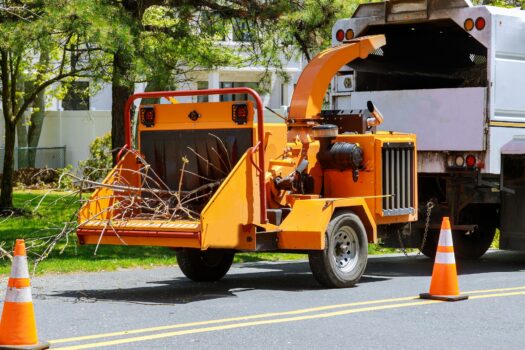Landscaping plays a vital role in enhancing the beauty and aesthetics of our surroundings. From excessive water usage to the use of chemical fertilizers, these practices can have detrimental effects on our ecosystems.
Wood chipping is a process that involves the conversion of tree branches, logs, and other wood waste into small wood chips. These wood chips can then be used for a variety of purposes, including landscaping. Wood chipping services are typically provided by companies that specialize in tree removal and maintenance. You may hop over here to know more about wood-chipping services.

Image Source: Google
Mulching is a common practice in landscaping that involves spreading a layer of organic material over the soil surface. This layer of mulch provides numerous benefits, both for the plants and the environment.
In addition to mulching, wood chips can be used to improve soil quality in landscaping projects. When added to compacted or poor-quality soil, wood chips increase its porosity and promote better drainage. This leads to healthier root systems and improved plant growth.
There are several benefits to utilizing wood chipping services for sustainable landscaping:
1. Environmentally friendly: Wood chipping services help in the sustainable management and recycling of organic waste material. Instead of sending tree branches, brush, and other wood waste to a landfill where it would contribute to greenhouse gas emissions, these materials can be chipped and repurposed for various beneficial uses.
2. Mulch production: Wood chips produced through chipping services can be used as mulch in landscaping projects. Mulch helps retain moisture, suppresses weed growth, and regulates soil temperature. Using wood chips as mulch not only improves the appearance of landscapes but also enhances soil health and reduces the need for chemical herbicides.
3. Erosion control: Wood chips can be used to prevent erosion in landscapes by creating a protective layer on slopes. The interlocking nature of wood chips helps to stabilize the soil and prevent the loss of topsoil due to water runoff.